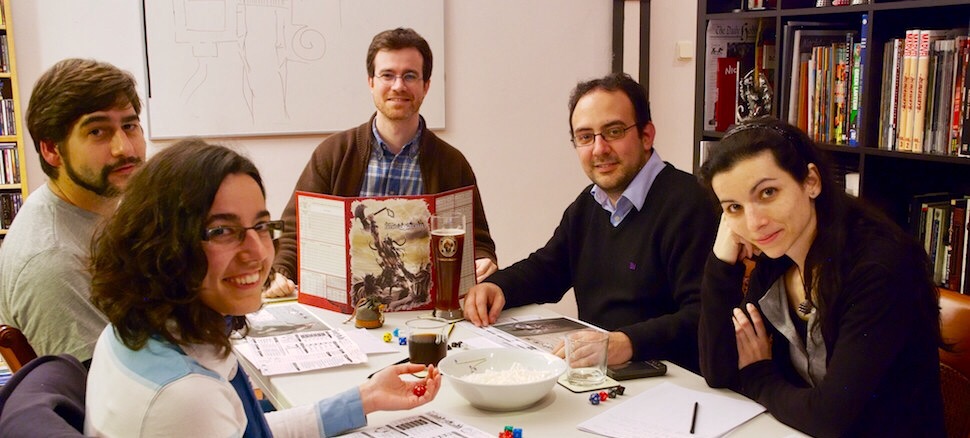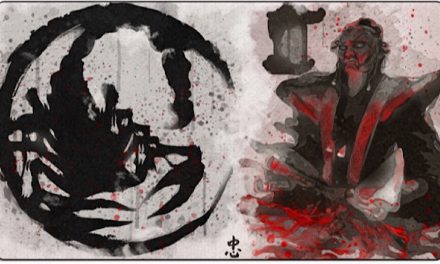Recently I started running a new Legend of the Five Rings campaign, with most of the players having participated in at least some of my previous five-year story arc in the same setting. I thought long and hard about how to make this experience different from those that had come before, either run by myself or by others.
Instead of focusing on the courtly politics and inter-Clan conflicts which have in many ways come to define the game—a fantasy not-Japan where society is strongly and stubbornly segregated by caste—my goals for The Famine (the title of this campaign) were to dive wholly into the mystical, the spirits and entities that exist beyond the laws of humankind. I set the campaign five hundred years before the more “modern” events the players were used to, at a time when the Empire was facing many great struggles.
More than just changing the focus and the timeline however, I decided to take my own advice—after more than a decade of participating in improv theatre games, my #1 suggestion for participants was “do what makes the best story.” Most gamers are used to the storyteller setting challenge difficulties, defining how complicated various puzzles are, and generally setting the tone of a game. What if, said I to myself, I took that one step farther?
I have decided to not roll any dice for this campaign, and instead decide what makes most cinematic and storytelling sense on a case-by-case basis. While all of the player’s characters have stats and skills and dice to roll, none of my NPCs will; what affects them and how they react is more a function of what makes the most fun in the long-term, not what a random dice-throw spits out.
After subtilely doing this for one very successful session, I brought up the idea to all of the players and they largely agreed to give it a try, and that they trusted me as a game-runner. Just as I set the difficulty of a character is trying to accomplish something unopposed—such as climbing a slick wall—I am also figuring what a reasonable difficulty should be in contested challenges as well—such as two spellcasters wielding fierce magics against one another.
Rolling dice behind a GM’s screen is a time-honored tradition in gaming, and the players (generally) trust that the GM is keeping things fair, or at least being honest. I openly admit I have fudged dice rolls before, usually in the players’ favor, but by taking a more narrative approach, one focused on the story, I feel there’s a greater agency for the story while still keeping that element of entropy for the players. This way I don’t have to worry about someone missing the one critical roll that would solve the puzzle, but also I don’t have to worry about Generic Mook #4 rolling something crazy and killing one of the heroes.
We’ve had half a dozen sessions now and I think the diceless (on my behalf) system has been working very well. It helps that I’m rather familiar with the rules, and where I’m not, I can shoehorn something in that suits the situation.
It meant a lot to me that the players are willing to give this zany idea a try, and I genuinely hope to see some very exciting stories emerge from it, all without sacrificing player agency.













